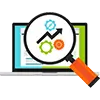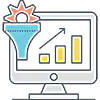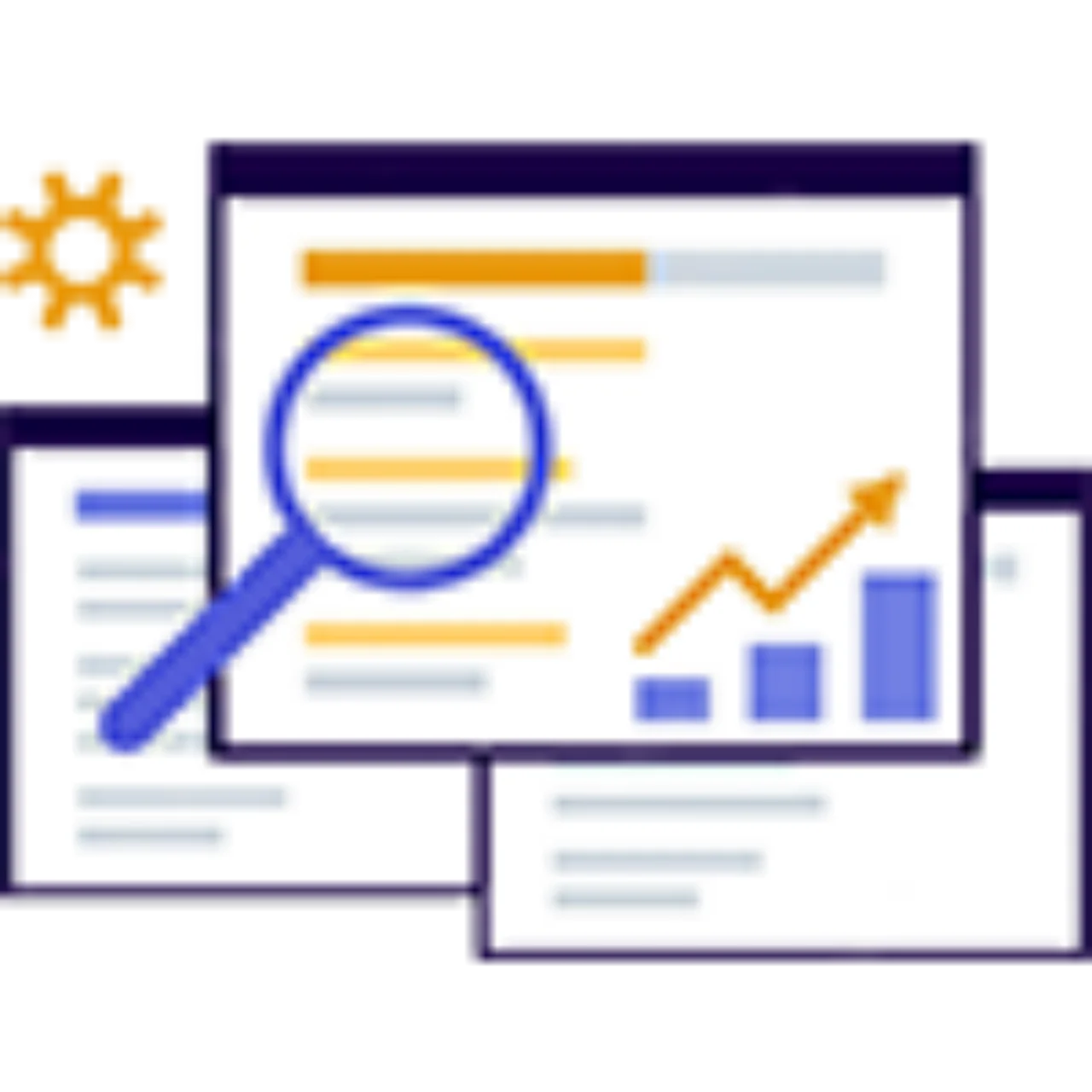
Pay-per-Click(PPC)
PPC, or Pay-Per-Click, is an online advertising model where advertisers pay a fee each time their ad is clicked. It is a method of buying visits to a website rather than attempting to earn those visits organically. However, running a successful PPC campaign requires careful planning, ongoing monitoring, and optimization. Advertisers need to continuously analyze data, refine keyword targeting, optimize ad copy, and improve landing pages to achieve better ad performance and cost efficiency. PPC advertising primarily operates through search engines like Google, Bing, and Yahoo, as well as social media platforms like Facebook, Instagram, Twitter, and LinkedIn.

Here's how PPC typically works

Advertiser Setup
As part of the PPC campaign creation process, the advertiser selects the advertising platform (such as Google Adwords or Microsoft Advertising) and creates an account.

Keyword Selection
Advertisers identify the keywords or search terms for which they wish their ads to appear when users search for those terms.These keywords should be relevant to the advertiser's products, services, or target audience.

Ad Creation
It is the advertiser's responsibility to create compelling and relevant ads that will appear when the selected keywords are searched.Ad formats can include text ads, image ads, video ads, or a combination thereof, depending on the advertising platform.

Bid Management
Advertisers set the maximum amount they are willing to pay for each click.The position of the ad in the search results is determined by the bid in addition to other factors, such as the ad quality and relevance.

Ad Auction
When a user performs a search using the selected keywords, the search engine's ad auction process takes place. As a result of assessing the bids, ad quality, and relevance of the ads, the search engine determines which advertisements will be displayed and in what order.

Ad Display and Clicks
If an advertiser's ad is deemed relevant and wins the auction, it is displayed on the search results page or other relevant placements across the advertising network. When a user clicks on the ad, the advertiser is charged for that click.
The Benefits
PPC is one of the most powerful ways to generate leads quickly, all while controlling your spending.

PPC ads are cost-effective
With PPC ad campaigns, you control how much you’re willing to spend per click (which is, in essence, your bid strategy). Since you only pay when visitors click on your link, you’ll get your money’s worth. One way of assessing the long-term performance of a PPC campaign is to look at its click-through rate (CTR) versus conversions. Using this approach, you can determine how many clicks will lead to a conversion and if they’re worth the spend. This means that you can adjust your bid strategy to maximize the number of clicks you get for your budget and then monitor your CTR to ensure that a good portion of your clicks are leading to conversions. This can help you optimize your PPC campaigns for the most effective results.

PPC ads produce fast results
It can take time to rank on search engines and attract organic traffic. PPC allows you to grab low-hanging fruit quickly and helps to increase your website authority. Think about it like this: If SEO is a marathon, PPC is a 500 meter dash. Using a mixture of paid advertising and organic marketing strategies actually should boost the impact of both strategies and grow your website’s reach.

PPC ads allow you to target your ideal customers
With PPC, you can bid on keywords that your customers are searching. you can also target your ideal audience more accurately than with traditional advertising. This allows you to reach more people that are likely to be interested in your product or service, which increases the chance of them taking action. Additionally, you can measure the success of your campaigns by tracking impressions, click-throughs, and conversions, which gives you valuable insight into what is and isn't working.

PPC can support your organic strategy
By using both PPC and SEO strategies, you can create a more targeted approach to reaching your audience. PPC ads can help you get quick visibility, while SEO can help you to ensure that you are targeting the right keywords and phrases. This can increase the quality of the traffic to your website, which can lead to more conversions. Additionally, having a content strategy in place that is based around the terms you are targeting can help you to create a cohesive message and further increase visibility.
The primary PPC platforms
There are two main platforms for you to use:
Why Need PPC Advertising ?

Immediate Results
PPC campaigns can generate immediate visibility and traffic to your website. As soon as your campaign is live, your ads can start appearing in search results and driving clicks.

Targeted Reach
PPC allows advertisers to target their ads to specific demographics, geographic locations, languages, and devices. This targeting capability helps ensure that your ads are seen by the right audience, increasing the chances of conversions.

Control and Flexibility
Advertisers have control over their budget, bid strategies, and ad messaging. It's possible to adjust and optimize campaigns in real-time based on performance, allowing for flexibility and maximizing results.

Measurable ROI
PPC advertising provides detailed performance metrics, such as impressions, clicks, conversions, and cost per acquisition. This data allows advertisers to measure their return on investment (ROI) accurately and make data-driven decisions to improve campaign effectiveness.
Do you need Assistance in choosing the right PPC Services?
Not sure which pay-per-click advertising services will work best for your company? Let's connect to receive assistance with the same..
